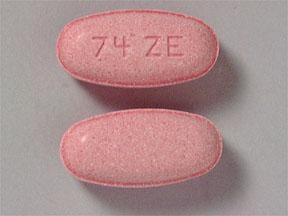
E.E.S. 400 Coupons & Savings Card – Discount Prices from $2.35
Brand for: Erythromycin ethylsuccinate
My prescription
Edit
400MG, Erythromycin Ethylsuccinate (40 Tablets)
Select pharmacy

CVS
$600.11
COUPON PRICE
Walgreens
$2.35
COUPON PRICE
Albertsons
$10.41
COUPON PRICE
Walmart
$17.85
COUPON PRICEE.E.S. 400 savings card
Show this card to your pharmacist
Walgreens
$2.35
BIN
ID
PCN
GRP
019876
LH91E948E0
CHIPPO
LHX
Powered by
More prescriptions for urinary tract infection
More prescriptions for urinary tract infection
E.E.S. 400 (Erythromycin Ethylsuccinate) dosage forms
Dosage Quantity Price from Per unit 400MG 40 Tablets $2.35 $0.06 400MG 9 Tablets $2.00 $0.22 400MG 20 Tablets $2.00 $0.10 400MG 21 Tablets $2.00 $0.10 400MG 28 Tablets $2.00 $0.07 400MG 30 Tablets $2.00 $0.07 400MG 56 Tablets $6.48 $0.12 400MG 60 Tablets $7.52 $0.13
| Dosage | Quantity | Price from | Per unit |
|---|---|---|---|
| 400MG | 40 Tablets | $2.35 | $0.06 |
| 400MG | 9 Tablets | $2.00 | $0.22 |
| 400MG | 20 Tablets | $2.00 | $0.10 |
| 400MG | 21 Tablets | $2.00 | $0.10 |
| 400MG | 28 Tablets | $2.00 | $0.07 |
| 400MG | 30 Tablets | $2.00 | $0.07 |
| 400MG | 56 Tablets | $6.48 | $0.12 |
| 400MG | 60 Tablets | $7.52 | $0.13 |
What is erythromycin EES 400 mg used for?
Erythromycin EES 400 mg is an antibiotic used to treat various bacterial infections. It is effective against respiratory tract infections, skin infections, and certain sexually transmitted infections, among others. It works by inhibiting the growth of bacteria, helping the body's immune system to eliminate the infection.
Is EES the same as erythromycin?
Yes, EES is a brand name for erythromycin ethylsuccinate, which is a form of the antibiotic erythromycin.
Is erythromycin ethyl succinate the same as erythromycin?
Erythromycin ethyl succinate is a form of erythromycin. It is an ester of erythromycin, which means it is chemically modified to improve certain properties, such as absorption. While both contain the active ingredient erythromycin, they may differ in terms of formulation and pharmacokinetics.
